Ph−C∣OHH−O||C−OHΔ−−→(X)
(X) will be:

Ph−CH=C=O
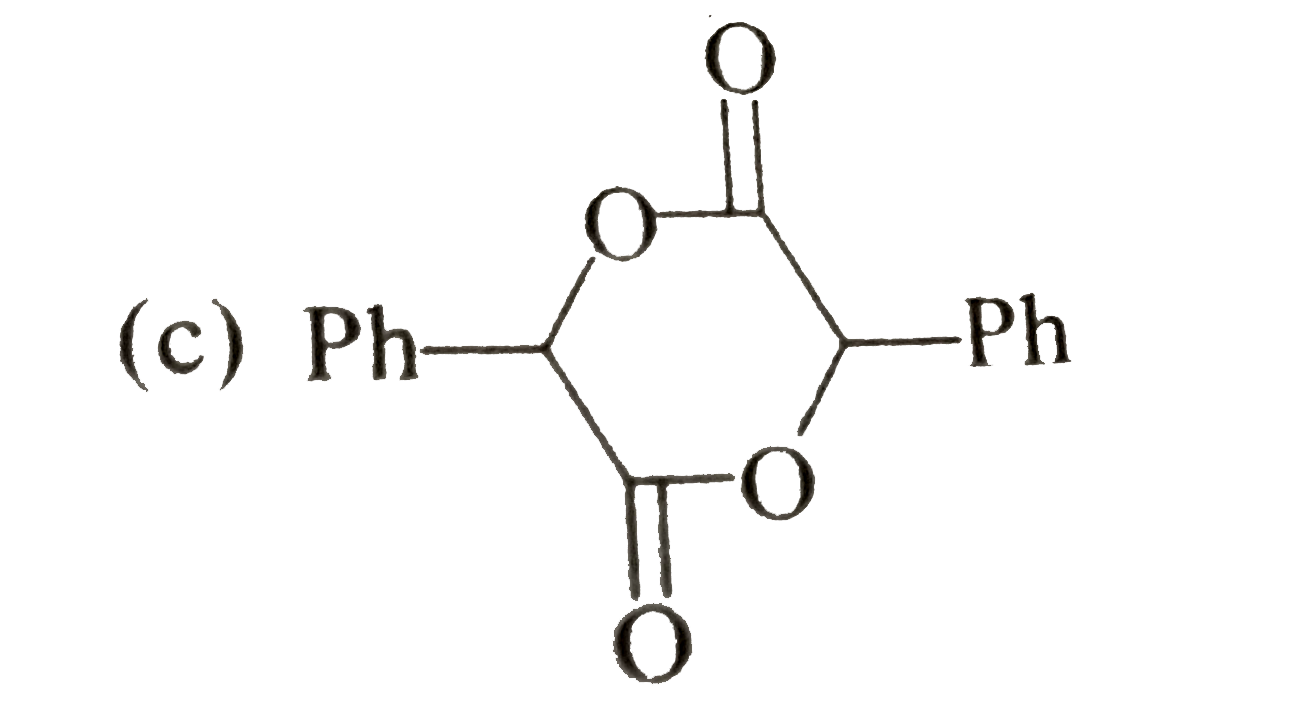
None of these
The correct Answer is:C
Step by step video, text & image solution for Ph-underset(OH)underset(|)CH-overset(O)overset("||")C-OHoverset(Delta)rarr(X) (X) will be: by Chemistry experts to help you in doubts & scoring excellent marks in Class 12 exams.
Updated on:21/07/2023Topper's Solved these Questions
- CABOXYLIC ACIDS AND ITS DERIVATIVESBook:HIMANSHU PANDEYChapter:CABOXYLIC ACIDS AND ITS DERIVATIVESExercise:Level 2 (Q.26 To Q.50)
Explore 25 Videos
- CABOXYLIC ACIDS AND ITS DERIVATIVESBook:HIMANSHU PANDEYChapter:CABOXYLIC ACIDS AND ITS DERIVATIVESExercise:Level 2 (Q.51 To Q.75)
Explore 25 Videos
- CABOXYLIC ACIDS AND ITS DERIVATIVESBook:HIMANSHU PANDEYChapter:CABOXYLIC ACIDS AND ITS DERIVATIVESExercise:Level 1 (Q.27 To Q.50)
Explore 24 Videos
- BIOMOLECULESBook:HIMANSHU PANDEYChapter:BIOMOLECULESExercise:Match The Column
Explore 6 Videos
- CARBONYL COMPOUNDSBook:HIMANSHU PANDEYChapter:CARBONYL COMPOUNDSExercise:Subjective Type Problems
Explore 10 Videos
Similar Questions
Knowledge Check
The product obtained in the reaction R∣OHCH−CH2O∣∣C−OhΔ−−→ ? Is :
A_S01_361_O01.png) B
B_S01_361_O01.png) CRCH=CHCOOHDNone of these
CRCH=CHCOOHDNone of theseIn the given reaction CH3−CH3∣C∣CH3−CH2−BrΔ−−→[X]
[X] will beACH3−CH∣CH3−CH=CH2BCH3−C∣CH3=CH−CH3CCH3−CH=CH−CH3DCH3−CH2−CH=CH2In given reaction [X] and [Y] respectively are CH3−O∣∣C−O−CH3∣C∣CH3−CH3Na/C2H5OH−−−−−−−−→(X)+(Y)
ACH3−CH2−OHandCH3−CH3∣C∣CH3−OHBCH3−CH2OHandCH3−C∣CH3=CH2CCH2=CH2andCH3−CH3∣C∣CH3−OHDNone of these
CH2CH2CH2−O∣∣C−OHΔ−−→ALAH−−→B∣NH2
View SolutionComplete the following reactions :
(a) Ph−CH2−CH2−OHCu/Δ−−−→, (b) Ph−CH∣OH−CH3Cu/Δ−−−→, (c) Ph−CH3∣C∣CH3−OHCu/Δ−−−→
View SolutionComplete the following:
a.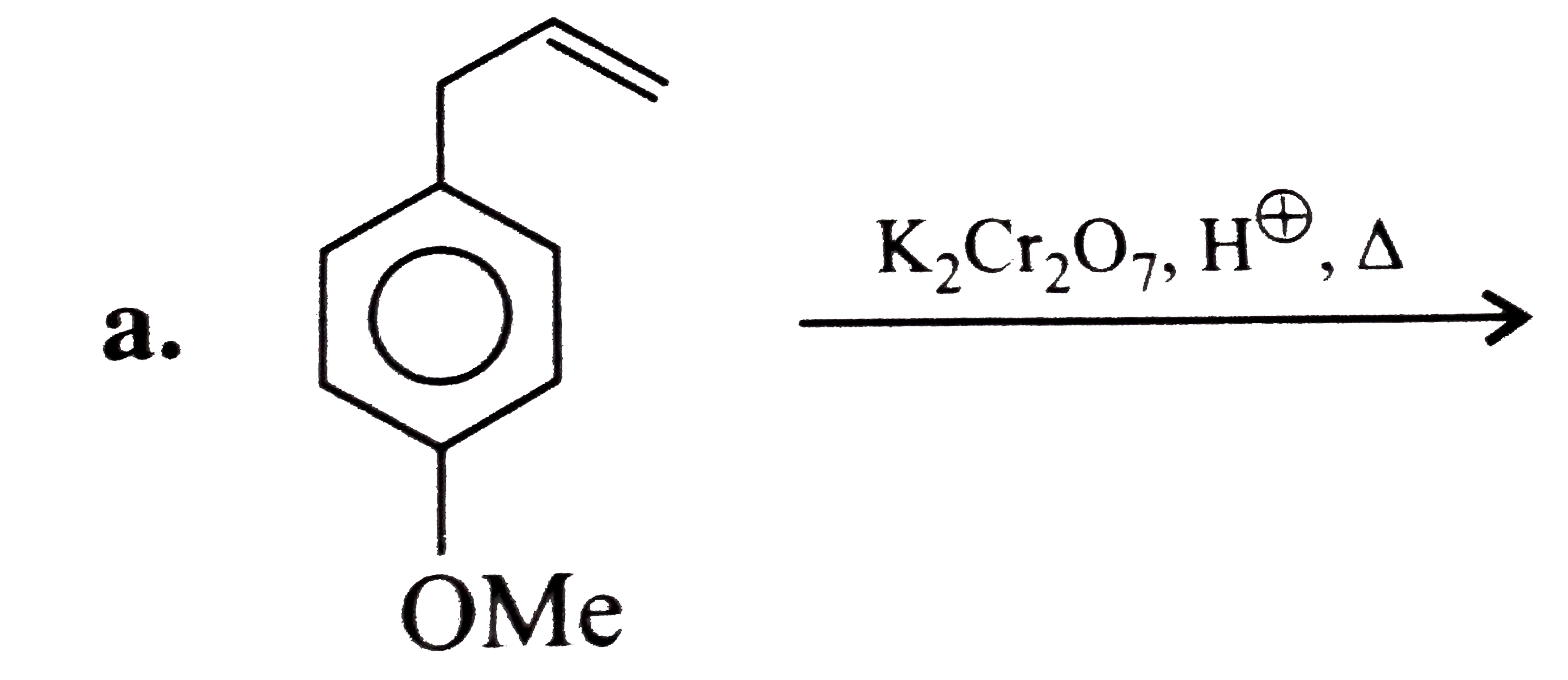
b.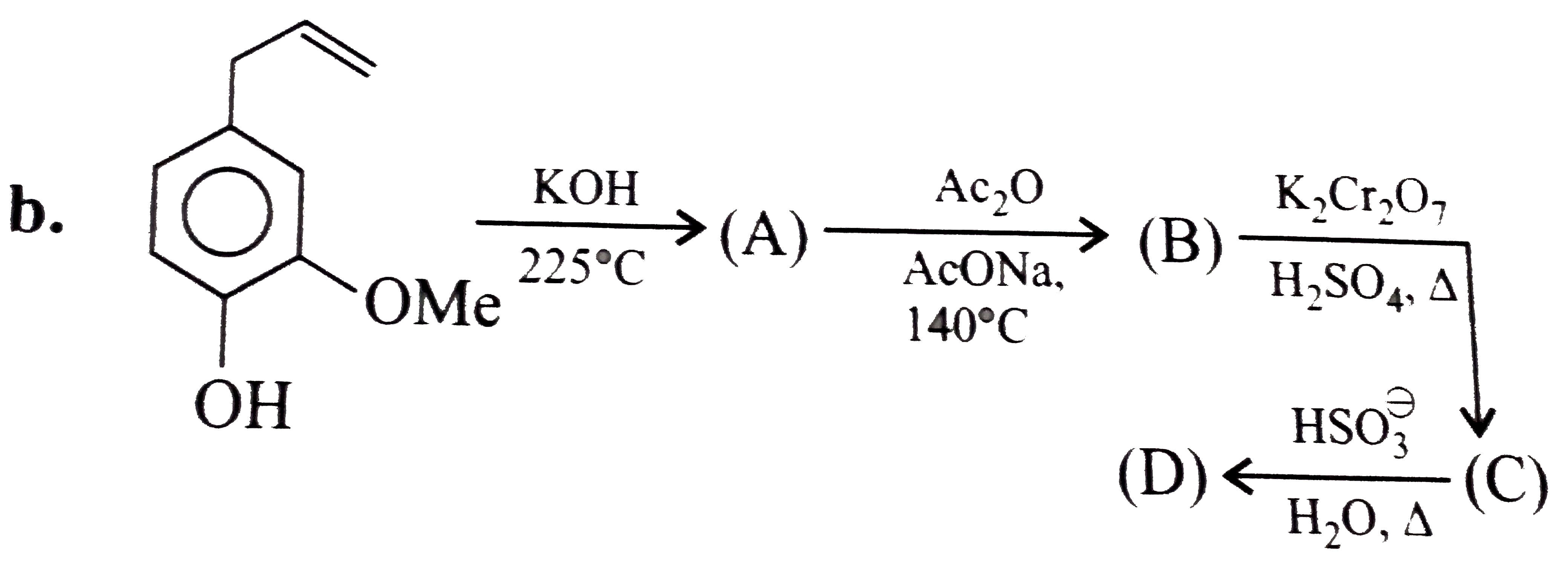
c.
d.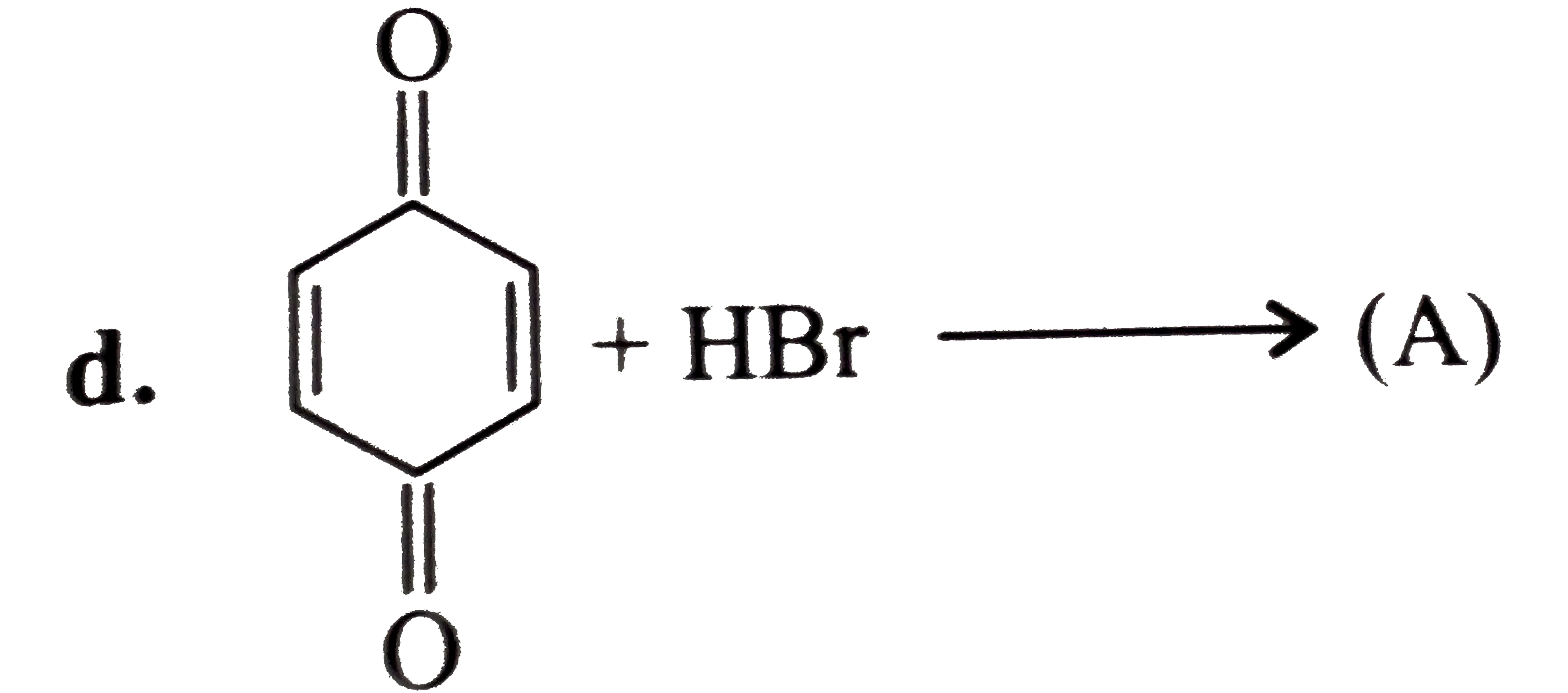
e.
f.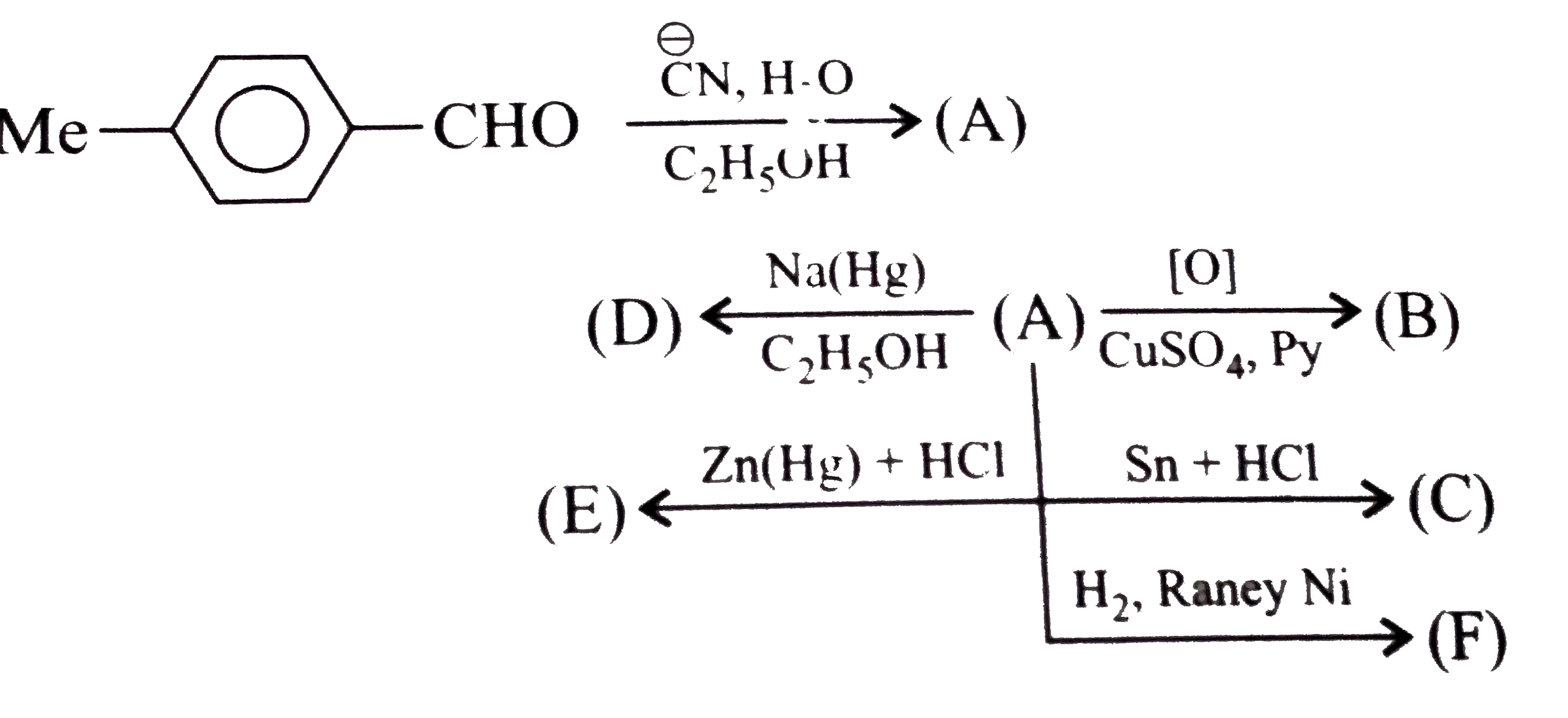
g.
h. PhCHO+Cl2No catalyst−−−−−−→(A)
i.
j. PhCHO+(C2H5CO)2OC2H5COONa−−−−−−−→A
k.
l.
m.
n.
o.
p.
q.
r.
s. PhCOCH3+SeO2→(A)
t. PhCH=CH−O∣∣C−Ph+KCNCH3COOH−−−−−−→(A)
u. Ph−C∣CNH−O∣∣C−CH3(i)H3O⊕−−−−−→(ii)Δ(A)
v.
w. Ph−OH∣C∣Ph−CH2NH2HNO2−−−→(A)Oxidation−−−−−→(B)
x. PhCOPh+KOH→(A)+(B)
y.
z.
View SolutionFind the total number of atoms in one molecule of the product formed H2COOH∣HC∣CH2OHGlycerol−OHKHSO4/Δ−−−−−−→ Product
View SolutionIn the given reaction :
CH3−OH∣CH−OH∣O∣CH3−CH3HIO4−−→(A)+(B)
(A) and (B) respectively be:
View Solution

